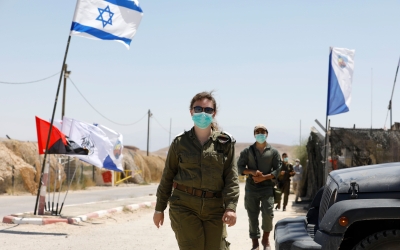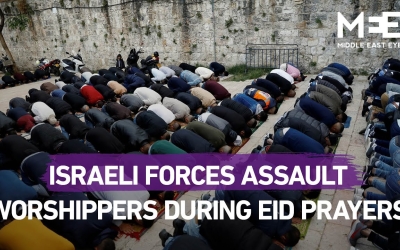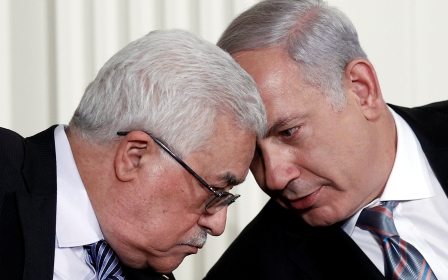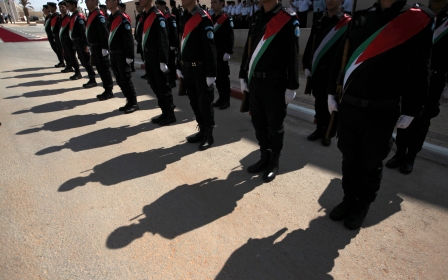Israel prevents Palestinian forces from entering West Bank village
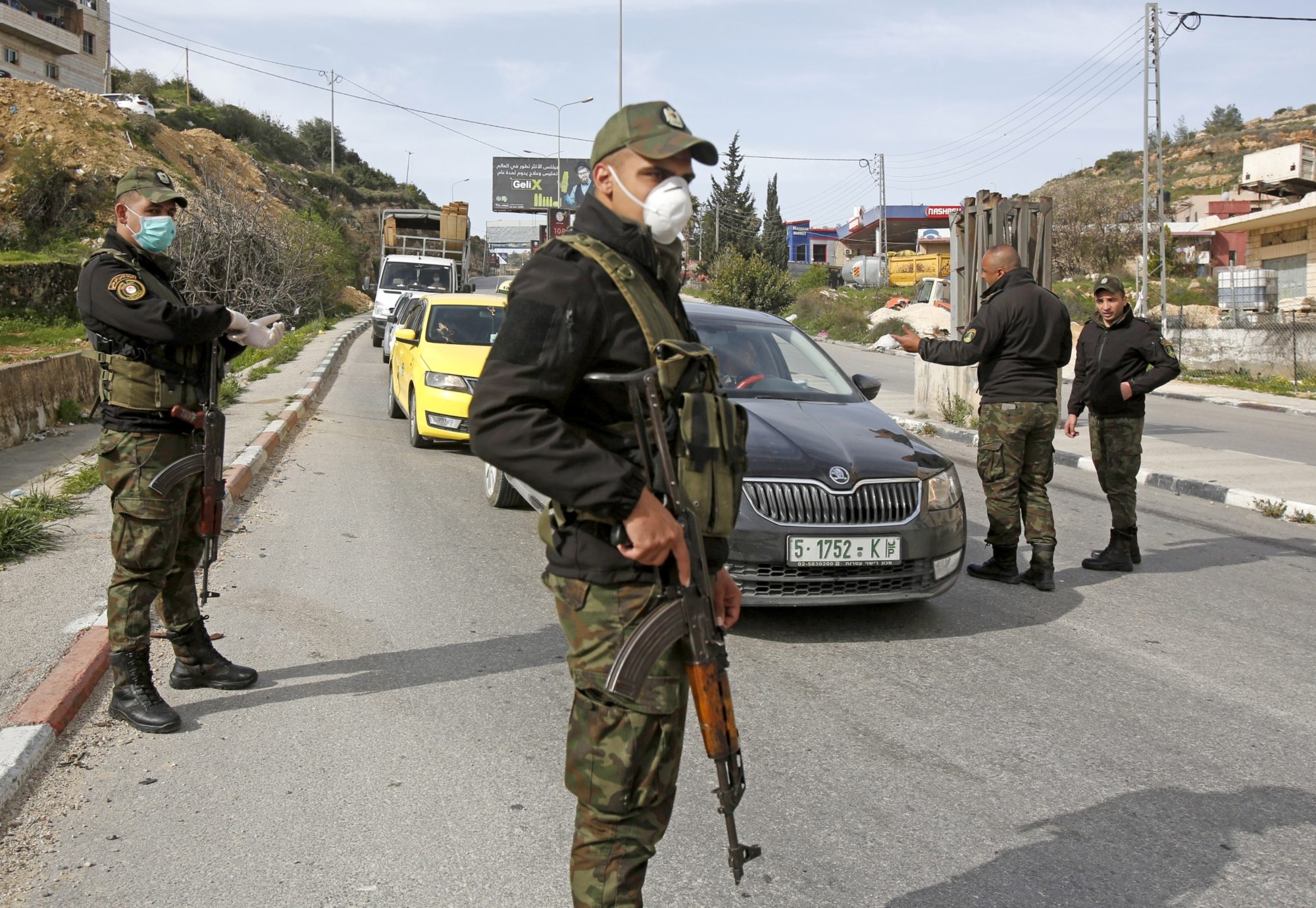
When Palestinian police officers got word of a violent dispute between families in the Nablus-area village of Qusra in the northern occupied West Bank on Monday night, they found themselves entering uncharted waters.
It was one of the first major incidents to happen in the area following the Palestinian Authority’s (PA) decision last week to end security coordination with Israel, in protest of Israeli plans to begin formally annexing large swathes of the West Bank in July.
New MEE newsletter: Jerusalem Dispatch
Sign up to get the latest insights and analysis on Israel-Palestine, alongside Turkey Unpacked and other MEE newsletters
Following the presidential announcement, Palestinian security forces have withdrawn from Area B of the West Bank, the 21 percent of the occupied territory where the PA is officially in charge of civil affairs, but otherwise remain under Israeli army control, as defined by the 1993 Oslo Accords.
“Our forces immediately prepared themselves to deploy to Qusra, wearing civilian clothes and without coordinating with the Israeli side as we would usually do,” Nablus Governor Ibrahim Ramadan told Middle East Eye.
But when they arrived at the borders of the village, which lies within Area B, the Palestinian officers were surprised to find flying checkpoints manned by Israeli soldiers standing in their way.
“They began stopping all vehicles entering Qusra, and checking everyone’s IDs,” Ramadan said. “Anyone whose name popped up in their system as a policeman or national security officer was turned around.”
Ramadan speculated to MEE that once Israeli authorities got word of what was happening in Qusra, they set up the checkpoints in order to make a point: if the PA was stopping security coordination, then Israel would not be allowing PA forces into areas technically under Israeli security control.
“We believe it was a deliberate measure to prevent Palestinian police from entering Qusra and de-escalating the situation there,” Ramadan said.
By the time the plain-clothed Palestinian officers found a way into Qusra using a network of backroads, the confrontation in the village had escalated.
Two people had been critically injured, including a 22-year-old who later succumbed to his wounds in the hospital.
‘We have no power’
When Palestinian Authority President Mahmoud Abbas announced an end to all agreements with Israel on 20 May, including the controversial policy of security coordination, Palestinians were sceptical, given that Abbas has made similar threats numerous times over the years without any real action on the ground.
But the subsequent withdrawal of Palestinian forces from Area B took many by surprise, as it was the first definitive action taken on the ground indicating that things might be different this time around.
The pullback, however, has presented a number of new challenges to Palestinians in the occupied territory.
With no police or security presence, Areas B and C, which together constitute more than 80 percent of the West Bank, how would the PA be able to maintain order in rural areas falling under Israeli jurisdiction?
Ramadan argued that the events in Qusra served as a good indication of what is to come.
“If Israel prevents the movement of our security forces throughout the West Bank, many rural Palestinian communities like Qusra will be put at risk,” Ramadan said, adding that 46 towns and villages fall within Areas B and C in the Nablus governorate alone.
Prior to Monday’s events, reports surfaced on local Arabic media outlets that Israeli authorities would begin preventing the movement of Palestinian security or police forces throughout the West Bank as early as this week, in retaliation for the PA’s move.
The incident in Qusra was the first documented case of Israeli forces preventing the entry of Palestinian authorities into a Palestinian town or village since security coordination was allegedly ended.
MEE contacted both the Israeli Civil Administration and the Palestinian liaison’s office, but did not receive confirmation that Israel would be enforcing a ban on the movement of Palestinian security forces throughout the West Bank.
Despite technically being under Israeli security control, communities in Area B and C rely on the PA to instil social order in the event such as intracommunity disputes, or most recently, quarantine and social distancing orders amid the Covid-19 pandemic.
“Technically under the Oslo Accords these areas should be under the responsibility of the Israeli security apparatus,” Ramadan noted. “But in reality, they don’t protect Palestinians in these areas.
“And now, they want to prevent us from protecting our people as well.”
Security coordination had enabled Palestinian police and security forces to access these areas in such a capacity - but without it, the PA has very little power to enforce any of its policies outside of Area A, the 18 percent of the West Bank under full PA civilian and security control.
“Even the lowest ranking Israeli soldier still has more power than a minister of the PA,” Ramadan said, noting that even as the governor of Nablus, he still gets stopped and checked by Israeli soldiers at military checkpoints.
“We as a people and as a government, are under occupation, it’s plain and simple,” he added. “And this shows that, as Palestinians, we don’t have power.”
Middle East Eye delivers independent and unrivalled coverage and analysis of the Middle East, North Africa and beyond. To learn more about republishing this content and the associated fees, please fill out this form. More about MEE can be found here.


